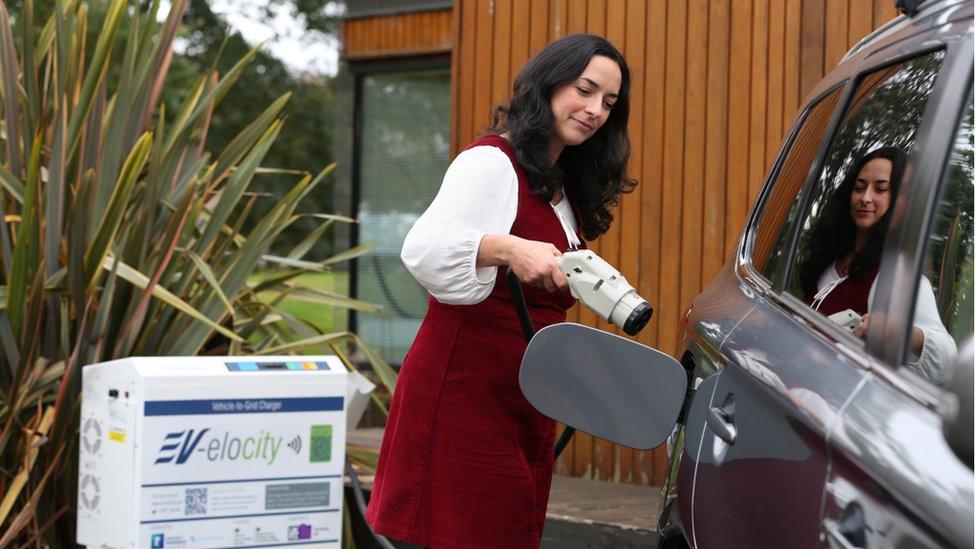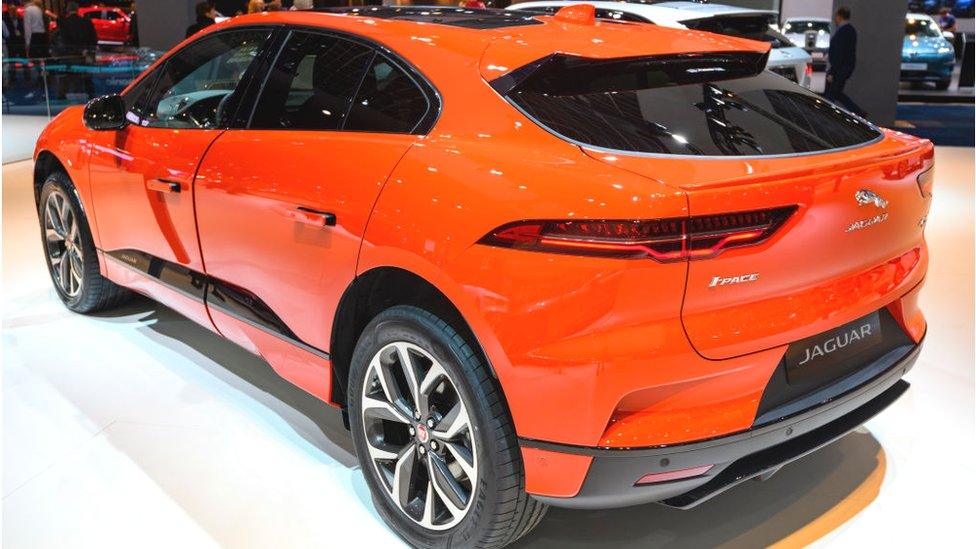Project to examine whether electric car batteries could power homes
- Published

Professor Lucelia Rodrigues says there is an urgent need for such technology
Researchers are exploring how electric car charging technology could be used to power homes, even making money for vehicle owners.
The project, which involves the Universities of Nottingham and Warwick, is looking at how the batteries could store electricity and discharge it back to the grid when it is most needed.
Researchers say the energy could then be used to power homes and businesses.
They added the scheme could help increase electric car purchases.
'Source of income'
The UK-wide project, named EV-elocity and funded by the Department for Business Energy and Industrial Strategy, is being led by Cenex, a not-for-profit consultancy, which is working with councils in Leeds and Nottingham.
It has been using special vehicle-to-grid (V2G) chargers in a range of locations across England as part of large-scale trials to gain insights on the emerging technology.
Professor Lucelia Rodrigues, the project's University of Nottingham lead, said: "Cities saw a huge drop in CO2 levels during lockdowns and installing V2G technology could help to reduce emissions from transport and electricity production long-term."
She said there was currently a disconnect between peak demand for energy - between 18:00 - 20:00 - when most people are at home - and the times that renewable sources, such as solar panels, generate power, when electricity demand is low.
"There is an urgent need to resolve this disconnect and find a way to increase the grid's capacity to store excess renewable power to reduce pressure on the energy system's infrastructure," she said.
"Why invest in a battery for your home if you have a car with a battery?"
Leeds City Council has installed five of the chargers, while Nottingham City Council plans to install 40.
The researchers said they were working to mitigate concerns using V2G would reduce battery life.
Dr Julie Waldron, research fellow at the University of Nottingham, said: "Electric vehicles could be a source of income when they're parked up.
"We know cost is a major factor deterring mass adoption of electric vehicles, but if V2G charging helps owners get a quick return on their investment, it could make purchasing electric vehicles a much more attractive option."

Follow BBC East Midlands on Facebook, external, Twitter, external, or Instagram, external. Send your story ideas to eastmidsnews@bbc.co.uk, external.
- Published1 June 2021
